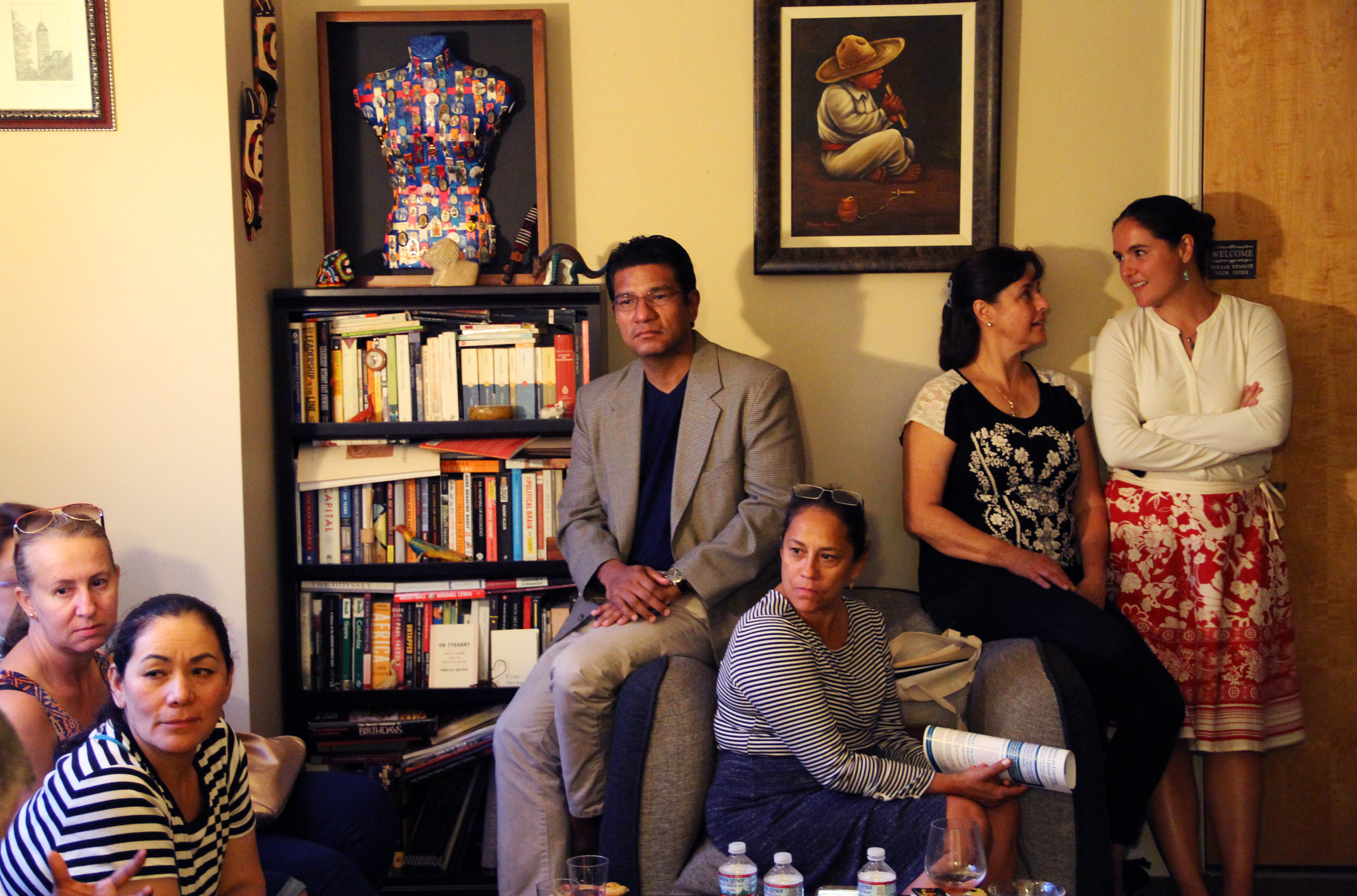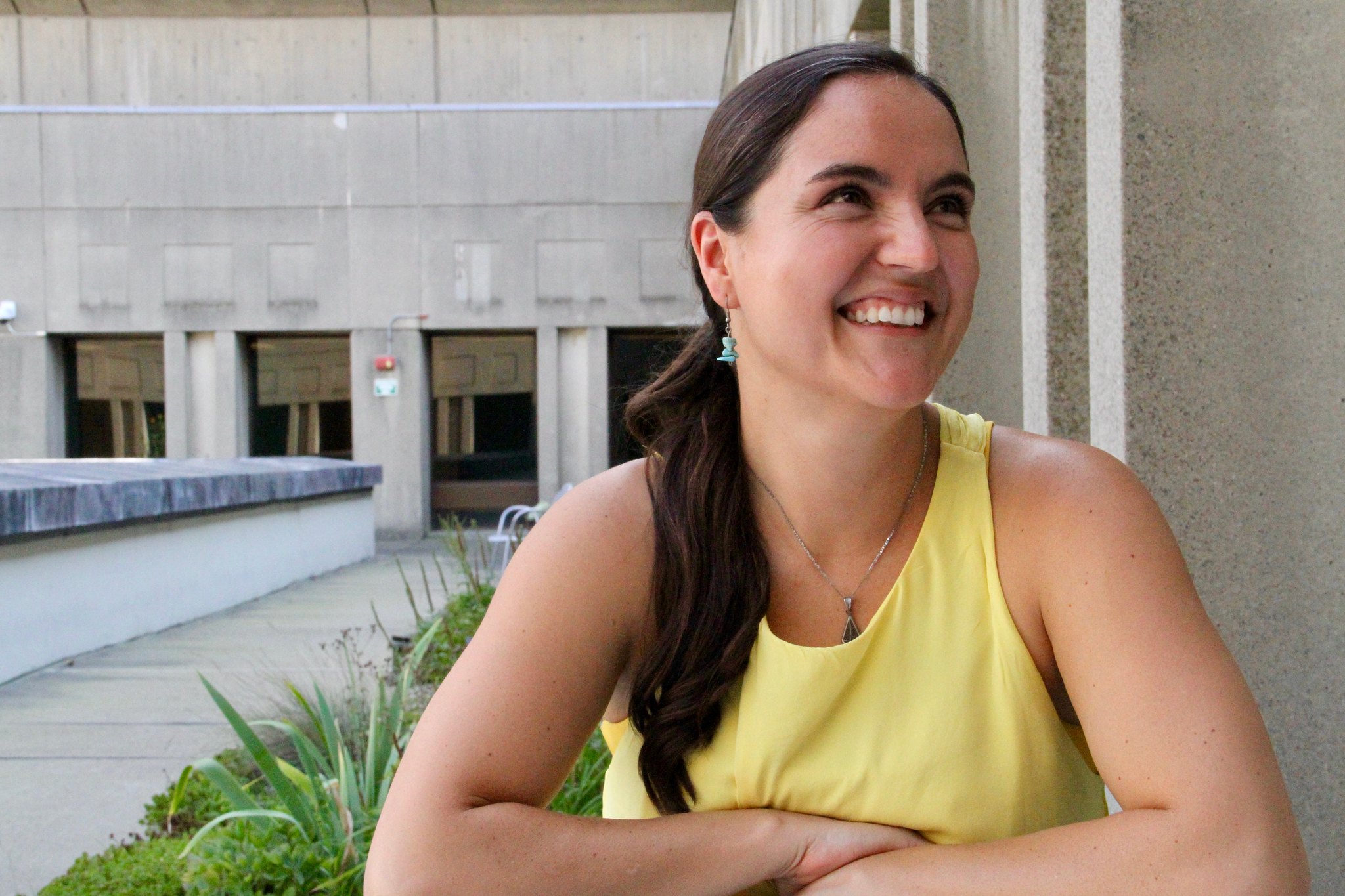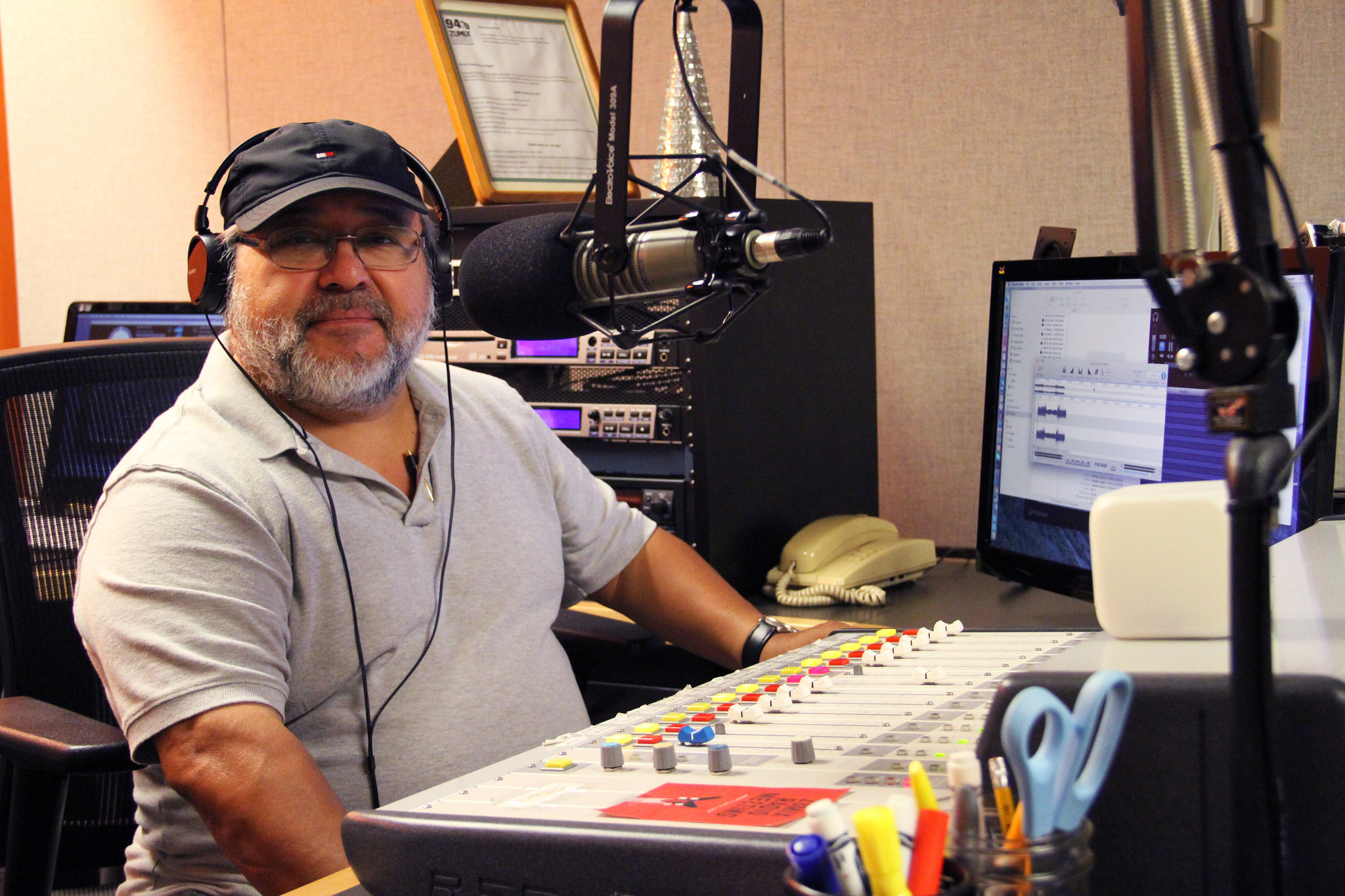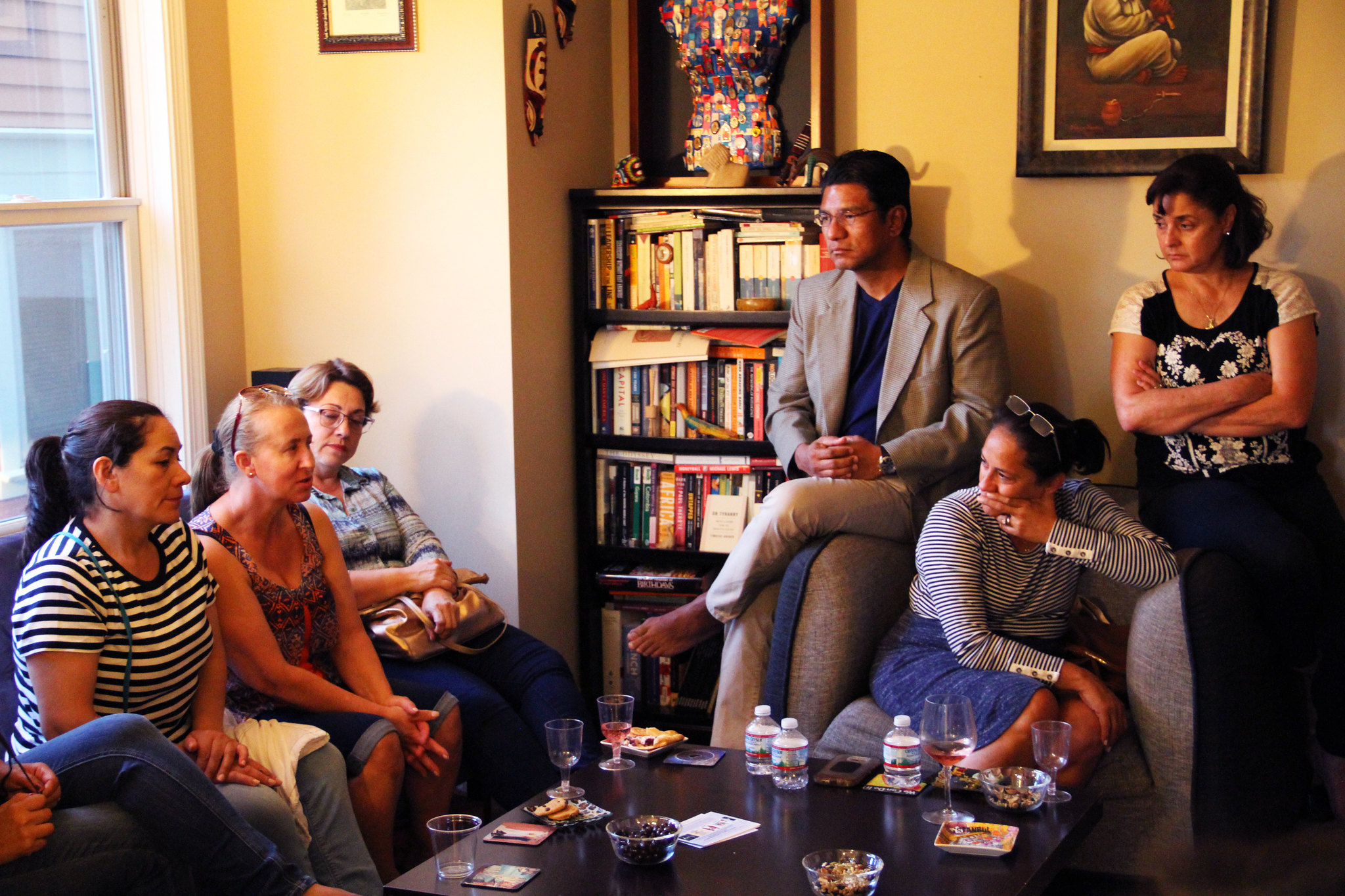Café o vino is a monthly meetup that Tania del Rio and Luis Bravo began to bring together Latino agents of change in East Boston to find connections, common agendas and foster collaboration. It is an informal gathering at Tania’s home, who opens the doors to her home and gives wine so that people can come together. The funny thing about Café o vino, Luis jokes, is that they always bring wine but they have never brought coffee.

“How can I help you?”
Tania del Rio, Executive Director for the Mayor’s Office of Women’s Advancement
At Café o vino, one of the participants introduced Tania to a newcomer to the city. Tania’s immediate reaction was to ask her how she could help her. This is a very illustrative moment of who Tania is: an agent of change trying to help the people around her.
Tania recalls that, growing up with a father whose jobs required him to travel, she changed locations frequently. She joined the Foreign Service in Mexico herself, and eventually came to Boston to pursue graduate education at the Kennedy School. Her involvement in student groups led her to organize events that brought her to East Boston, where she could meet leaders like Patricia Montes and Veronica Robles. After her nomadic life, she decided to settle down and create change through local public service and neighborhood life, and East Boston came to mind immediately.
“We were looking for an extended family. My parents don’t live in Boston, and only one of my sisters is here. We were looking for the people who would be our aunt, our grandma, and we found them in East Boston. The people I have met here feel that close.”
Through her work for the City of Boston and her volunteer efforts as an East Boston resident, Tania promotes a vision for the East Boston where she wants her child to grow up.
“The East Boston I would like to see would have more acceptance among its different communities. Sadly, we have seen division and racist comments on our community spaces online. I would love it if that were not the case. If we could solve the security problems I have seen where I live, or at our schools; when a family loses one of its members, we all suffer their loss. I would love for East Boston to be friendlier to women, with less street harassment. I would love for us to have more clean, green spaces, and good leisure opportunities for youth. And I don’t think we are far from being that community; we have all worked to make it happen.”

How can newcomers like Tania join in the effort to make this East Boston happen? Tania thinks they can do so by supporting and amplifying those who have been working for this East Boston for a long time. This is what led her to open the doors of her house to host Café o vino: she wanted to see people come together to discuss their work and future collaborations.
“You should support the organizations that already exist and do an amazing job in the area: Harbor Keepers, ZUMIX, Veronica Robles Cultural Center, the YMCA, the Clinic. You can support with your time and with your money. You can participate in political processes, especially local elections, where Latinos have historically had low participation. Find a candidate that represents your values and donate them time, money, and do direct campaigning for them. And take the time to meet your neighbors and create relationships because they can help people feel a sense of belonging.”
“All of us in East Boston must work to create links.”
Luis Bravo, Editor of El Heraldo Latino
“My name is Luis Bravo. I have lived around 30 years in East Boston, and I have seen it grow. Welcome to East Boston, the most friendly neighborhood in the Boston Area.”
Luis Bravo was a journalist in Peru over thirthy years ago at a time when terrorist acts were everyday matters. Two of his brothers lived in East Boston and one of them insisted that life would be better here. Finally convinced, he decided to come to East Boston in 1987 and give his brother a surprise.
“But I was the one who would be surprised. My brother was no longer living here, so I stayed with my other brother. I came here with the illusion to explore the media market, and my brother woke me up at 5 in the morning to take me to work at a deli, where I filled the ice machine, worked on inventory and different tasks. They gave me two full time jobs per day.”

Luis tried to make time, however, to explore and understand the Hispanic media ecosystem, as well as the problems faced by the Hispanic community in the United States. He started reaching out to people, and someone put him in touch with Tony Molina, who was a radio DJ back then. They founded and published a newspaper together for six years. This led him to a series of projects in media (newspaper, radio and TV) and his current newspaper, El Heraldo Latino, where he’s covered issues that the East Boston community faces: pollution, airport expansions, problems in the education system, among others. But, thirty years later, why does Luis continue to report in Spanish?
“I think it is important to report in Spanish because we are serving immigrant communities from places where corruption has sacked their hopes. They arrive without the knowledge of how basic things work, such as how to get a medical appointment.”
For Luis, his work on the newspapers and his collaboration with Tania on Café o vino are about bringing people together.
“All of us in East Boston should make the effort to create links, to create commitment among our communities to face the problems that challenge us in East Boston. If we create alliances with all ethnic groups we will work better and mitigate the damages of our problems.”
If you just got here, how can you get involved?
“A lot of us fled trying to save our lives, and did not have a chance to understand life here before coming. The first thing you have to do is inform yourself: go to church and ask the priest where are the organizations in your community. Try to learn the lifestyle here, adapt and integrate, but not assimilate. Move and don’t just focus on your work.”
